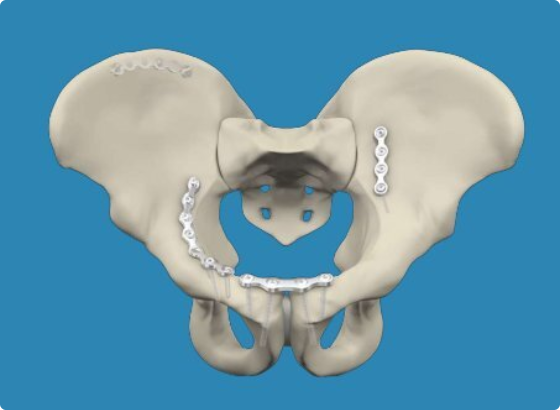
Acetabular and Pelvis Fracture
Acetabular and pelvis fractures are serious injuries that can significantly impact a person's mobility and quality of life. These fractures occur when the bones surrounding the hip joint, specifically the acetabulum and pelvis, are fractured due to high-energy trauma, such as motor vehicle accidents, falls, or sports injuries.
Causes
Acetabular and pelvis fractures are often caused by significant force applied to the hip region. This can result from accidents, falls from heights, or direct impact during sports activities. The severity of the fracture can vary, ranging from minor fractures to more complex fractures that involve multiple fragments and disruption of the hip joint.
When to See the Doctor
If you experience intense hip pain, swelling, difficulty bearing weight on the affected leg, or notice deformity around the hip area after an injury, it is crucial to seek immediate medical attention. Prompt diagnosis and treatment can help prevent further damage and complications.
Treatment and Surgery Options
Treatment for acetabular and pelvis fractures typically involves a multidisciplinary approach. Initially, non-surgical management may be attempted, including pain management, immobilization with a brace or cast, and physical therapy. However, in more severe cases, surgical intervention may be necessary. Surgery options include open reduction and internal fixation (ORIF) using screws, plates, or rods to stabilize the fracture fragments, or in complex cases, hip replacement surgery may be required.


How London Ortho Hospital Can Help
London Ortho Hospital is committed to providing comprehensive care for acetabular and pelvis fractures. Our team of experienced orthopaedic surgeons specializes in the treatment of complex fractures and offers state-of-the-art surgical techniques. We utilize advanced diagnostic imaging and surgical planning to ensure precise fracture reduction and optimal outcomes. Our dedicated rehabilitation services, including physiotherapy and pain management, play a crucial role in the recovery process.




